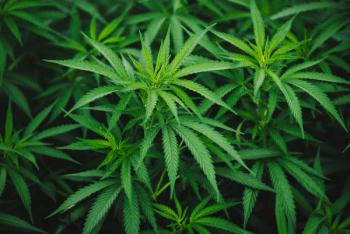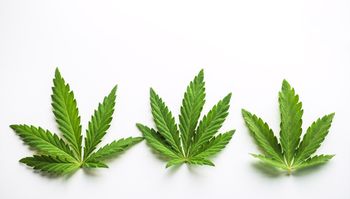Cannabis-Based Medicines Show Promise for Insomnia, UK Study Finds
Key Takeaways
- Cannabis-based treatments showed improvements in sleep quality, anxiety, and health-related quality of life in insomnia patients over 18 months.
- Adverse events were reported, with fatigue, insomnia, and dry mouth being the most common, though none were life-threatening.
A UK Medical Cannabis Registry study found cannabis-based medicines improved sleep, anxiety, and quality of life in insomnia patients.
UK Medical Cannabis Registry Study Methods
Researchers aimed to investigate how prescribed cannabis-based medicinal products affected patient-reported outcome measures (PROMs) for insomnia as well as any adverse events (AE). “
The UKMCR was founded in 2019 and currently under private ownership of Curaleaf Clinic. The cannabis prescriptions were given after a confirmed diagnosis of insomnia and after confirmation that at least two other licensed medications did not result in improvements.
The Cannabis Prescriptions
- At baseline, the median daily CBD dose was 1 mg /day increased to 10 mg/day by month 3 and sustained to month 18
- At baseline the median daily dose of THC was 20 mg/day increased to 120 mg/day by month 18
Benefits Reported by Patients
Improvements were seen in subjective sleep quality, anxiety, and health-related quality of life (HRQoL) PROMs.
- Single-Item Sleep Quality Score (SQS) improved from baseline (2.66 ± 2.41) to 18 (3.81 ± 2.90) months
- Generalized Anxiety Diorder-7 (GAD-7) scores improved from baseline (9.59 ± 6.31) to 1 month (4.99 ± 4.91), though improvements over the subsequent months were small yet still statistically significant
- The EuroQol-5 Dimension-5 Level health questionnaire dimensions of pain/discomfort, anxiety/depression, and index values were all shown to be significant
Adverse Events Reported
A total of 112 AE were reported 11 participants, and out of these, 53 were considered mild, 48 were moderate, and 11 were severe. None were considered disabling or life threatening. The most common were fatigue, insomnia, and dry mouth, though the researchers noted that the AEs could be indicative of symptoms from insomnia.
Limitations and Future Research
Limitations to the study include the lack of long-term data collection greater than one week prior. Additionally, recall bias is possible from PROM questionnaires; possible selection bias of the study group for higher socioeconomic backgrounds; the limited generalizability of the results for the greater population due to the limited cohort size; and limited data on the potential impacts of cannabis strains, insomnia sub-types, and patient comorbidities.
Overall, the researchers stated that the results indicated a positive association between the cannabis-based medications and improvements in sleep. “Whilst the study demonstrates good tolerability and improvement in PROMs within 18-months, the findings also indicate that this improvement may not be sustained over a longer period, and tolerance could develop,” they explained. “These findings can be used to inform future RCTs.”
“Conducting this long-term study provided valuable real-world evidence on patient outcomes that go beyond what we typically see in short-term trials,” stated study author Simon Erridge, MBBS, in a
References
- Aggarwal, A.; Erridge,S.; Cowley, I.; Evans, L.; Varadpande, M.; Clarke, E.; McLachlan, K.; Coomber, R.; Rucker, JJ.; Weatherall, MW.; Sodergren, MH. UK Medical Cannabis Registry: A clinical outcomes analysis for insomnia, PLOS Mental Health. 2025. DOI:
10.1371/journal.pmen.0000390 - Curaleaf Clinic. Medical Cannabis for Insomnia: Latest Findings from the UK Medical Cannabis Registry. September 9, 2025.
https://curaleafclinic.com/medical-cannabis-for-insomnia-latest-findings-from-the-uk-medical-cannabis-registry/ (accessed Sep 18, 2025).
Newsletter
Unlock the latest breakthroughs in cannabis science—subscribe now to get expert insights, research, and industry updates delivered to your inbox.






